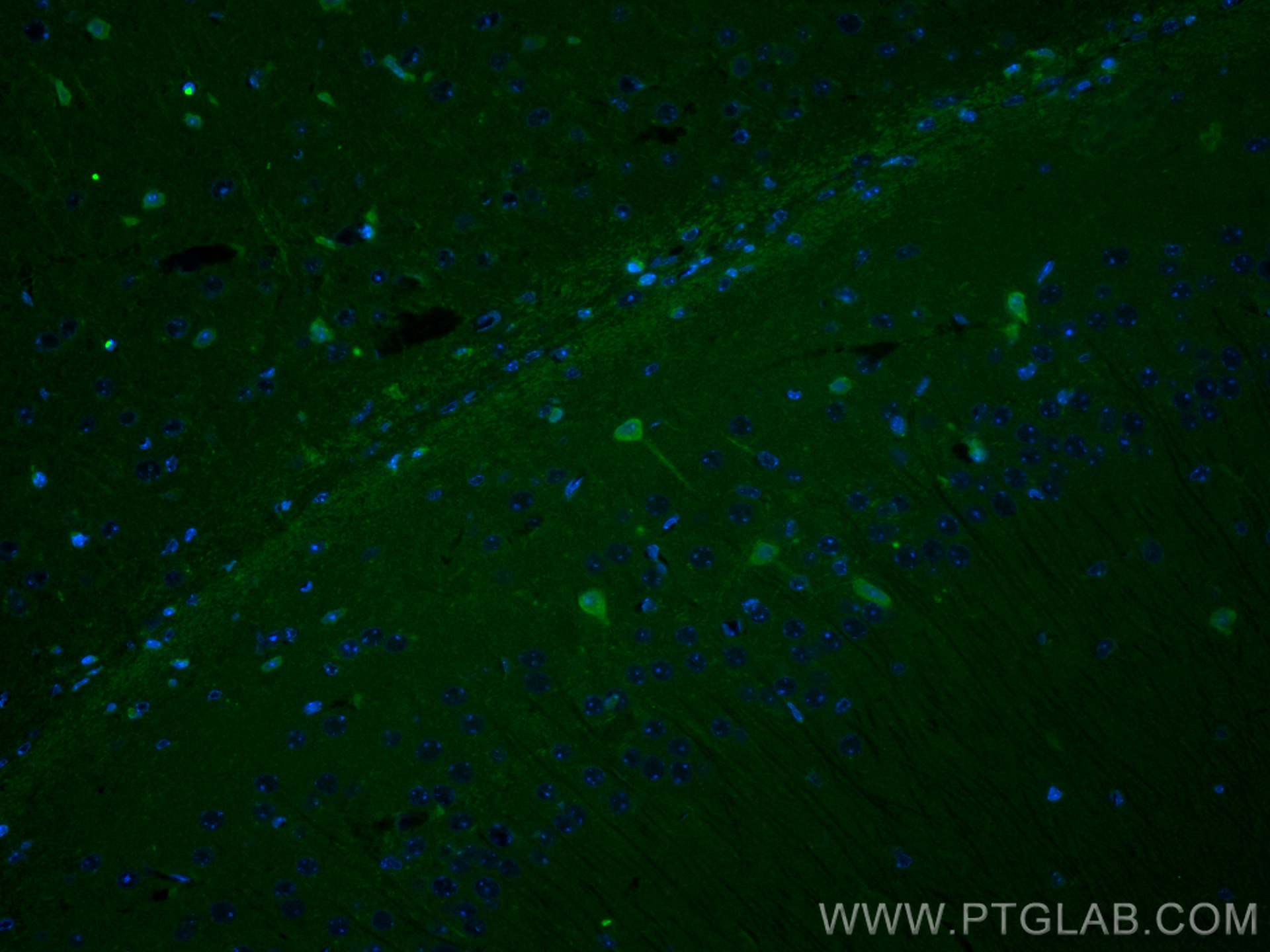- Phare
- Validé par KD/KO
Anticorps Polyclonal de lapin anti-PINK1
PINK1 Polyclonal Antibody for IF-P
Hôte / Isotype
Lapin / IgG
Réactivité testée
Humain, rat, souris
Applications
IF-P
Conjugaison
CoraLite® Plus 488 Fluorescent Dye
N° de cat : CL488-23274
Synonymes
Galerie de données de validation
Applications testées
| Résultats positifs en IF-P | tissu cérébral de souris, |
Dilution recommandée
| Application | Dilution |
|---|---|
| Immunofluorescence (IF)-P | IF-P : 1:50-1:500 |
| It is recommended that this reagent should be titrated in each testing system to obtain optimal results. | |
| Sample-dependent, check data in validation data gallery | |
Informations sur le produit
CL488-23274 cible PINK1 dans les applications de IF-P et montre une réactivité avec des échantillons Humain, rat, souris
| Réactivité | Humain, rat, souris |
| Hôte / Isotype | Lapin / IgG |
| Clonalité | Polyclonal |
| Type | Anticorps |
| Immunogène | PINK1 Protéine recombinante Ag19825 |
| Nom complet | PTEN induced putative kinase 1 |
| Masse moléculaire calculée | 581 aa, 63 kDa |
| Poids moléculaire observé | 65 kDa, 45 kDa |
| Numéro d’acquisition GenBank | BC028215 |
| Symbole du gène | PINK1 |
| Identification du gène (NCBI) | 65018 |
| Conjugaison | CoraLite® Plus 488 Fluorescent Dye |
| Excitation/Emission maxima wavelengths | 493 nm / 522 nm |
| Forme | Liquide |
| Méthode de purification | Purification par affinité contre l'antigène |
| Tampon de stockage | PBS with 50% glycerol, 0.05% Proclin300, 0.5% BSA |
| Conditions de stockage | Stocker à -20 °C. Éviter toute exposition à la lumière. Stable pendant un an après l'expédition. L'aliquotage n'est pas nécessaire pour le stockage à -20oC Les 20ul contiennent 0,1% de BSA. |
Informations générales
PINK1 is a mitochondrial serine/threonine-protein kinase that protects cells from stress-induced mitochondrial dysfunction. The precursor of PINK1 (65 kDa) is synthesized in the cytosol and is imported into the outer membrane of mitochondria. PINK1 is further transferred into the inner membrane. The full-length PINK1 can be proteolytically processed into 52-55 kDa and 45-46 kDa forms (PMID: 18221368; 25108683; 18031932). The half life of the mature form of PINK1 is very short and it was proposed that the proteasome is involved in its degradation (PMID: 23472196). The gene of PINK1 maps to chromosome 1p36.12. Two alternatively spliced variants exist, the shorter isoform (30 kDa) produced by alternative splicing. Mutations in the PINK1 gene cause autosomal recessive early-onset Parkinson's disease.
Protocole
| Product Specific Protocols | |
|---|---|
| IF protocol for CL Plus 488 PINK1 antibody CL488-23274 | Download protocol |
| Standard Protocols | |
|---|---|
| Click here to view our Standard Protocols |


